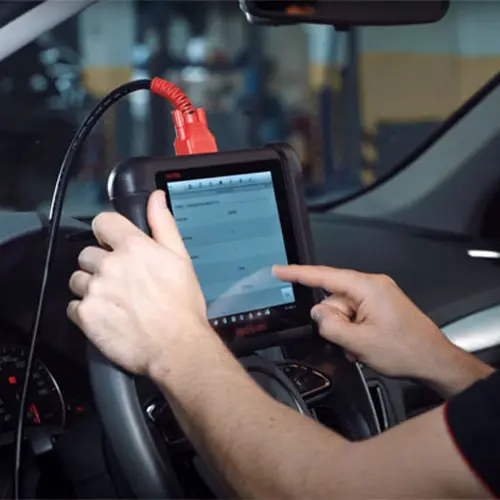5 Killer Quora Answers On Broken Key Repair
페이지 정보
작성자 Alva 댓글 0건 조회 8회 작성일 25-07-19 21:35본문
Broken Key Repair: Solutions for Common Lock Issues
Introduction
Keys are necessary tools in our every day lives, enabling us to secure our homes, vehicles, and personal belongings. Nevertheless, they can also break, causing frustrations and hassles. Understanding how to address broken key concerns is important for anybody wishing to keep their locks and make sure access to their property. This short article covers numerous elements of broken key repair, consisting of common causes, repair approaches, and preventive measures to avoid future circumstances.
Common Causes of Broken Keys
Keys can break for numerous reasons. Comprehending these causes can help in preventing future incidents:
- Wear and Tear: Over time, keys can wear down due to regular usage, leading to weakened shafts that are more most likely to break.
- Poor Key Design: Keys that are badly created might do not have structural integrity, making them more prone to breaking under tension.
- Inaccurate Key Usage: Using excessive force to turn a key, specifically in a jammed lock, can easily lead to a breakage.
- Environmental Factors: Extreme temperatures or exposure to moisture can weaken metal keys, leading to brittleness.
- Lock Malfunctions: A malfunctioning lock can place excessive stress on a key, causing it to snap during operation.
Indications of a Broken Key
Identifying a broken key frequently comes with apparent indications. Here are some signs:

- Partial insertion into the lock: If the key can not be fully inserted or removed.
- Unexpected resistance: If the key feels stuck when being turned.
- Noticeable splits or fractures: Inspecting the key can reveal cracks or breaks in the metal.
- Incomplete engagement: The key might turn less than needed to activate the lock.
Approaches for Broken Key Repair
When faced with a broken key, there are several methods to think about for repair. It is necessary to select the right one based upon your particular circumstance.
1. Remove the Broken Key
If a key breaks within a lock, the very first action is to remove the broken part:
- Use tweezers or needle-nose pliers: If a piece is protruding of the lock, carefully pull it out.
- Place a key extractor tool: This customized tool can help extract lodged parts more effectively.
| Tool | Best Used For |
|---|---|
| Tweezers | Shallow extraction |
| Key extractor tool | Deeply lodged key pieces |
| Lubricant spray | Alleviating extraction of stuck parts |
2. Superglue Method
For scenarios where a key has actually partly broken however is undamaged enough to remain grasped, the superglue technique may offer a short-term fix.
- Tidy the broken surfaces completely.
- Apply a thin layer of superglue.
- Hold the pieces together for a few minutes till the glue sets.
Note: This technique is not an irreversible option and ought to be used with care as the repair can quickly stop working under operational stress.
3. Metal Epoxy
For a more robust repair, metal epoxy supplies a more powerful bond than superglue.
- Follow the directions on the epoxy packaging for preparing the adhesive.
- Apply to the broken area and hold till set (usually a couple of hours).
4. Duplicate the Key
In circumstances where lock performance is necessary, creating a duplicate key is often the best route:
- Visit a locksmith: Many locksmiths can replicate keys quickly and effectively.
- Use a key-tracing service: Some locksmiths use tracing techniques to cut a similar key based on the remnants.
5. Lock Replacement
When keys consistently break, it might be because of lock issues rather than key integrity. In such cases:
- Consult a locksmith to assess the lock's condition.
- Think about replacing the lock entirely if significant damage or wear appears.
Avoiding Key Breakage
Avoiding key damage is typically better than repair. Here are some practical ideas:

- Limit force on keys: Always turn keys carefully to avoid unnecessary stress.
- Routine key assessment: Check for wear and change keys revealing indications of damage.
- Utilize a keychain: Prevent extreme bending by utilizing a durable keychain.
- Lubricate locks: Ensure locks operate efficiently to minimize pressure on keys.
- Store keys appropriately: Avoid positioning keys in environments that can cause rust or rust.
Frequently Asked Questions About Broken Key Repair
1. Can I repair a broken key myself?
Yes, you can attempt to repair a broken key yourself utilizing approaches like the superglue or metal epoxy strategies. However, these are short-term fixes, and it is advisable to consult a professional locksmith for a more resilient solution.
2. Is it worth fixing a broken key?
In many cases, particularly with sentimental or distinct keys, a repair might be worth it. For basic keys, duplication or replacement is usually more efficient and trusted.
3. How can I avoid my keys from breaking?
To prevent breakage, ensure that keys are exempt to extreme force, regularly inspect them for wear, and keep locks properly maintained.
4. When should I seek a locksmith's aid?
If you are not able to remove a broken key from a lock or if the lock malfunctions frequently, it's finest to look for a locksmith's competence.
Broken keys can provide a considerable inconvenience, but they are manageable with the right approach. By comprehending the common causes and readily available repair techniques, individuals can react successfully to key breakage. Drawing from preventive steps will also help keep key integrity and performance. Eventually, a proactive approach to key and lock upkeep can considerably decrease the frequency of these bothersome problems.
- 이전글부달 [budaltop.com] 만족도 25.07.19
- 다음글[찌라시.com] 백링크대행업체 구글웹문서배포광고 구글웹문서배포홍보 구글웹문서배포 25.07.19
댓글목록
등록된 댓글이 없습니다.
